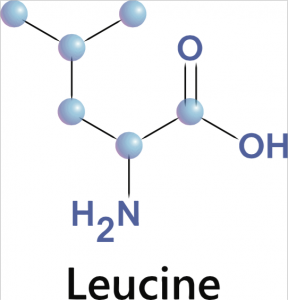Resistant Starch: Part 1 of 3 – What is it?
What if I told you there was a starch that increased insulin sensitivity, preserved muscle, and helped burn body fat? ...

What if I told you there was a starch that increased insulin sensitivity, preserved muscle, and helped burn body fat? ...
In a startling feat of biological engineering, our body must involuntarily produce an array of chemicals to promote specific actions ...
By Roland Pankewich Read Part 1 HERE Read Part 2 HERE So far we have outlined some basic principles that ...
In this day and age, exercise and general health have become not only a trend but a necessity. Townships and ...
When it comes to “Junk” food. First we must clarify what “junk” is. Carbohydrates themselves for example don’t make you ...
In this eye-opening article, Ben gives a breakdown of what cardio ‘actually’ is, and how the application of this newfound ...
In what situations should I take carbs pre-workout? There is no situation where you NEED pre-workout carbs, but there are ...
Not all fats are created equal. Put simply, there are good fats and bad fats: the so called unsaturated and ...
Energy expenditure can vary greatly from large muscle groups to small muscle groups. This is evident easily by the poundage ...
Grocery shopping with health and fitness in mind can be a hassle. That is why in order to to minimize ...
Leucine is the most important of the BCAAs. When it comes to signaling muscle building (protein synthesis), Leucine is King ...
The importance of fibre as an essential nutrient is often overlooked and the daily requirements of obtaining enough presents a ...
You have also likely heard of ‘HMB’ which is a derivative of leucine. In fact the above pathway requires that you have an enzyme that converts leucine to HMB to activate the mTOR signaling. In most young males this is not a limiting factor and your body does this quite efficiently after training. With age however, this enzyme is down-regulated in the body, and the benefits of leucine decline. So males 35 and over should pay the surcharge for HMB. I like the idea of taking a small dose of leucine still, because the enzyme production does not completely shut off, and you still want to stimulate the production of this enzyme.
 Taking a quality BCAA with a high ratio is the best for peri-workout leucine use. Leucine powder is the most economic way to get additional supplemental leucine. However, there is a metabolite of leucine called beta-hydroxy-beta- methylbutyrate (HMB) that is also widely used in bodybuilding.
Taking a quality BCAA with a high ratio is the best for peri-workout leucine use. Leucine powder is the most economic way to get additional supplemental leucine. However, there is a metabolite of leucine called beta-hydroxy-beta- methylbutyrate (HMB) that is also widely used in bodybuilding.
Amino acids can be catabolized within cells, and their subsequent metabolites can have effects as well. HMB was researched heavily as it was originally thought to be the metabolite responsible for leucine’s activation of the mTOR pathway. While comparison studies show that it does lead to mTOR signaling it is not the same signaling, they are not identical.
In clinical comparisons we have seen that Leucine and HMB can significantly increase muscle protein synthesis. HMB seems to have a slightly stronger but shorter period of around 30 min of increased Protein synthesis, while Leucine works for around 90 minutes +.
The two theories for this are that leucine and its other metabolites also have muscle protein synthesis signaling benefits, and the fact that Leucine has shown to cause an increase in insulin as well. We know that insulin also acts on the mTOR pathway in a different way than leucine directly.
Leucine has been shown to activate the AKT pathway whereas HMB did not show that the signaling of these muscle protein synthesis genes is different. Insulin which acts as not only its own anabolic signaling hormone down the AKT pathway, but increases the uptake of other amino acids into the cell. In both cases they are dependent on other amino acids also being present because even with signaling you need the raw materials (other amino acids) for protein synthesis.
It’s important to note that HMB does not induce an insulin response. So by itself, HMB was more anti-catabolic than anabolic when compared to leucine. HMB seems to activate many of the anti-catabolic signals normally seen in the presence of insulin, without increasing insulin. So HMB is a great way to get the muscle sparing benefits of insulin while using a lower carb diet.
Leucine and HMB both enhance muscle growth, but not using the same exact mechanisms. That might mean that you can boost muscle building by combining leucine and HMB. HMB provides a slightly stronger increase in protein synthesis for a shorter period of time showing its potential for a great post-workout supplement. One strategy would be to use HMB immediately PWO or with lower carb meals, and Leucine 2 hours post training and with higher carb meals. Leucine showed sustainable increases in protein synthesis for a longer period of time, making it ideal for use immediately after a workout as well as in later meals.
There is no negative impact to taking them both post workout other than the added cost. Leucine is much cheaper than HMB.

Leucine provides a small insulin increase beneficial to increased protein synthesis when other amino acids are present.
HMB can provide an anti-catabolic effect alone, making it the ideal choice to take between meals when restricting calories or having gaps between meals. HMB is a great supplement for those trying to lose body fat and retain muscle mass when used in this fashion.
The cost-benefit of using both HMB and leucine post workout is debatable. Research has shown as little as a 10% increase in protein synthesis with HMB vs leucine, but some claim up to 3x as effective. HMB is significantly more costly, so if budget is a concern I would use more leucine while bulking and save HMB for when you’re goal is losing bodyfat.
In general the most effective dose for leucine in a 200lb male is 30 grams. I for example take about 40 capsules of Poliquin BCAA’s in a training session, and an additional 15g of leucine in my post workout shake.
This equates to a 30g total for leucine during the workout.
Additionally I will add 5-10g of leucine to my next meal for additional benefits.
If I am restricting calories. I will take a few BCAA’s and 2g HMB between meals to retain muscle while cutting body fat.
Another important note is that as we age, we tend to become less efficient at metabolizing leucine to HMB. This makes a case for males 35+ to use more HMB.
Another helpful notes is that some research suggest that free HMB may be more bioavailable than calcium HMB. Dr James Wilson has done some great research on this at the University of Tampa.
HMB is a patented ingredient so most supplements will use the same supplier for their ingredients. So brand is not necessarily that important as long as it is a reputable company that has good quality control.
(Wilkinson. 2013) A group of researchers from the UK and Canada has recently found that “leucine (Leu) possesses the most marked anabolic characteristics in acting as a trigger element for the initiation of protein synthesis”. In that it is even superior to its best-known metabolite β-hydroxy-β-methylbutyrate (HMB), which has a 40% less pronounced stimulatory effect on protein synthesis (110% leucine; 70% HMB; after oral supplementation).
The reason it may still have merit to supplement with (additional) HMB is its non-insulin dependent effects on skeletal muscle breakdown (-57%), which would up the rate of protein retention, i.e. the difference of protein synthesis (70%) and protein breakdown (-57%) to 127% and should thus result in superior net gains in skeletal muscle protein compared to pure leucine.
Bottom line: Whether you actually “need” HMB, is a whole different question, though. After all studies comparing a simple 30g whey protein shake and an HMB supplement are missing and whether the addition of HMB to the whey would yield benefits is questionable. Unfortunately we are still waiting on more research to be able to attach exact comparisons of leucine and HMB in identical real world bodybuilding scenarios.